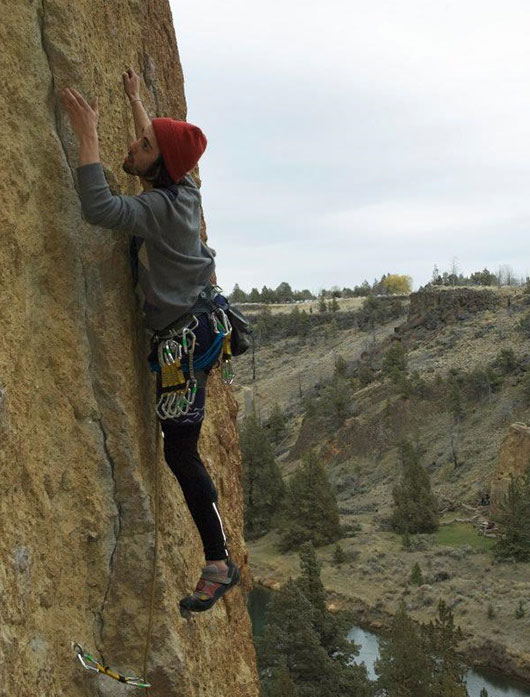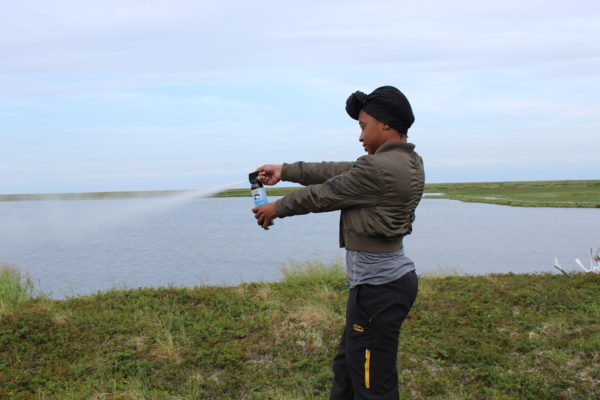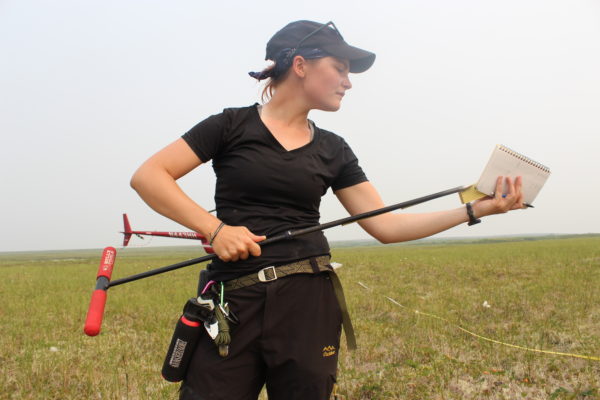Mammoths started it all. Growing up I became infatuated with monsters of the ice age, reading with awe and terror of past geological epochs. Giant sloths, sabre tooth cats and mastodons satisfied my fantastical imagination, while providing tangibility I couldn’t find in pure fantasy. Dinosaurs were too big a leap. But I could imagine the ice age creatures being formed from animals I know well. Almost as though they had been forced through a funhouse mirror machine, distorting their size and shape, enlarging noses into trunks and teeth into tusks. Other animals just seemed to have the volume turned down.
My nascent interest in these ancient animals was alighted again when I learned about a project to restore the mammoth ecosystem in Siberia called Pleistocene Park. I was so excited, I wrote an article for Western Washington University’s environmental magazine, The Planet. While reporting, I learned that the project was part of a larger effort called the Polaris Project, which addressed a new captivating monster — climate change.
Now I am Russia bound. I can’t think of any research that better blends my background in environmental science with the worldwide social implications. Instead of peering into the past as I did when I was young, the team will be working to unveil trends in carbon cycling for the future. “Human beings are now carrying out a large scale geophysical experiment of a kind that could not have happened in the past nor be reproduced in the future,” said Roger Revelle, renowned chemist studying ocean acidification.

Reaching for a hunk of columnar basalt in Smith Rock, Oregon
The Polaris Project is an opportunity to be on the front lines of this grand experiment. By virtue of tricky radiative physics, the angle of the sun and ocean and atmospheric circulation, the Northern Polar Regions are warming 2-4 times faster than the rest of the world. For me, seeing northern Siberia this summer will be like peering into a window 20 years into the future. Changes are happening extremely fast, fundamentally altering the vegetation and nutrient cycles. But what excites me the most is the power of water.
Earth has a marvelous tendency to remain in temperatures that allow water to remain liquid, but the arctic has traditionally been cold enough to keep the ground frozen, even in the summer. Greenhouse gasses are trapping heat released from the earth, warming the air and turning the frozen ground into boggy wetlands. Frozen ground — or permafrost — that once acted like a sheet of pavement, is now allowing water to penetrate into the soil, pooling or eroding the soft ground. Pools turn into lakes as the sun heats the water, further thawing the surrounding earth. The entire coastal system is subsiding into the ocean, like giant frozen flan perched atop a hill now sliding down. The ancient ground is also filled with nutrients and carbon that may not have been accessible to organisms for more than a hundred thousand years. I want to dive into the complexity of the shifting watershed and try to understand how regional and local scale changes in hydrology will affect the transport nutrients, carbon and sediment.
But that is just what I am excited about now. I know when I hit the ground in Siberia, my hypotheses will be curtailed and twisted into something totally different — and probably more exciting. I have a lot to learn and I can’t think of a better way than exploring this foreign biome, turning over stones with seasoned stone-turners, trying to unravel the mysteries of the arctic.
Embedded in my excitement is a nagging urgency in my gut. As an ecologist and a humanist I am simultaneously in wonder and fear of this new monster. Huge shifts in climate are not new. In the past other animals have completely changed the composition of the atmosphere. We are not the first ones to do something like this — but we are the first to be cognizant of our actions. Maybe our science, maybe in some small way my science, can help us avoid the fate that mammoths could not.




Comments(6)-
-
-
-
-
-
Max Holmes says
June 26, 2014 at 8:13 amFantastic post Julian. I can’t wait to read what you post from Siberia!
All the best,
Max Holmes
Kathy Patrick says
June 26, 2014 at 5:11 pmI am looking forward to reading more about your adventures in Siberia. Be safe and bring back lots of tales for me. Leave out the monsters.
Good luck, Kathy
Peter Han says
June 26, 2014 at 9:04 pmExciting stuff, Julian. Can’t wait to meet you in person, we can talk mammoths.
Dominique Theberge says
June 27, 2014 at 5:54 pmGreat post! Amazing and meaningful adventure awaits you and the team. Best to all and take care.
Heidi Rodenhizer says
June 27, 2014 at 11:52 pmLiving the science dream! Give Han a hard time for me. 😉
Maria Pilar Aparicio says
July 6, 2014 at 9:08 pmLike your parents I am very proud of you and know how much this project means to you. Very proud to have such an incredible nephew and I too is looking forward to hear about your fascinating adventures in Siberia face to face. Take care.